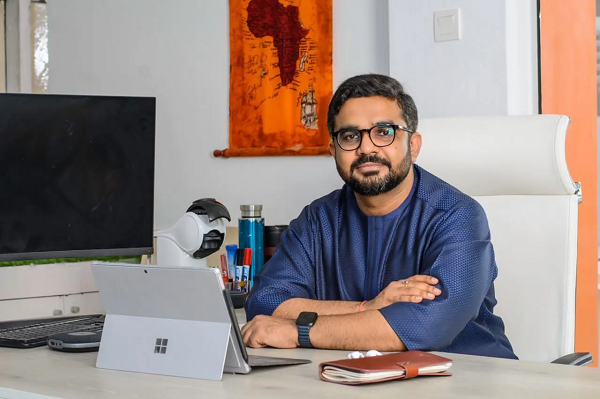How African e-Commerce Will Prosper Through Verticalisation
African e-commerce will prosper through a verticalised approach, and startups operating in the space should seek to acknowledge and complement the strengths of existing retailers rather than reinventing the wheel, according to Deepankar Rustagi, founder and chief executive officer of Nigerian retail-tech venture Omnibiz.
Founded in June 2019, Omnibiz allows retailers to place orders at their convenience and have goods delivered to their doorstep with zero delivery costs. Retailers can stock up their shops using the company’s mobile apps, WhatsApp channel, or a dedicated care number.

Speaking to Disrupt Africa during a four-part podcast series on the African e-commerce and retail-tech space – which was produced in partnership with with Omnibiz and Kenyan retail-tech startup MarketForce – Rustagi says African e-commerce is not likely to follow the global “Amazon” style model of a mega-platform offering multiple goods. He believes verticalisation is the route to a thriving online retail ecosystem on the continent.
Read also : How 3D Gamified Business Processes Will Change World
“We think e-commerce will work with a niche e-commerce. It enables all the players to focus their attention on one direction, so, for example, e-commerce for art, e-commerce for fashion, e-commerce for electronics. As much as we would like one company to do it all, it requires a very different infrastructure, from warehousing to logistics, to demand creation […] We feel because the African market is very, very fragmented, it will have verticalisation, where people will be leaders of different verticals, and will evolve as mega-platforms within these verticals rather than with multiple products,” he says.
Commerce is a difficult market to crack in Africa given the practical realities and infrastructure constraints involved with doing business, however, Rustagi says it is the most important area to focus on in the coming years as the continent’s youthful population grows and demand for essential goods becomes more pressurised.
“Retail is the toughest problem to solve, but it’s also the most important problem to solve in the coming years in the African space because of the growth in population, because of the young population, and because of the way the markets are emerging. And I would say, as the projections show, by 2025-2030, e-commerce will be a significant part of overall trade in Africa.”
With the contributions of retail-tech, the experience of consumers will evolve significantly – improving things like purchasing process, reach of products and inventory range. Eventually the experience will be homogenous regardless of where in the country or continent a consumer is from. This will do wonders for access to essential goods, Rustagi says.
Read also : Cellulant Partners Solv Kenya on Digital Payment Services.
But in building this future of retail-tech, startups don’t need to “reinvent the wheel”, he says. Startups should focus on the strengths and challenges actually faced by existing small retailers currently supplying the majority of Africa’s consumers.
“Tech is now revolutionising [the work of brick-and-mortar retailers]by providing a digital backend to these retailers so their transactions are noted, they become more worthy of credit,and they can increase their working capital, their inventory, increase their offering to their customers, growing their topline and building their profitability. […] African retailers never had a technology backend supporting them to scale, today, that tech backend is being developed enabling them to scale up,” Rustagi says.“We don’t have to reinvent the wheel, in digitising, in creating retail-tech, we have to see where the strength of existing retail lies, and how we can complement that with digitisation. If the focus is on complementing, we are able to focus on a larger number of retailers, and in a more effective manner
Kelechi Deca

Kelechi Deca has over two decades of media experience, he has traveled to over 77 countries reporting on multilateral development institutions, international business, trade, travels, culture, and diplomacy. He is also a petrol head with in-depth knowledge of automobiles and the auto industry




